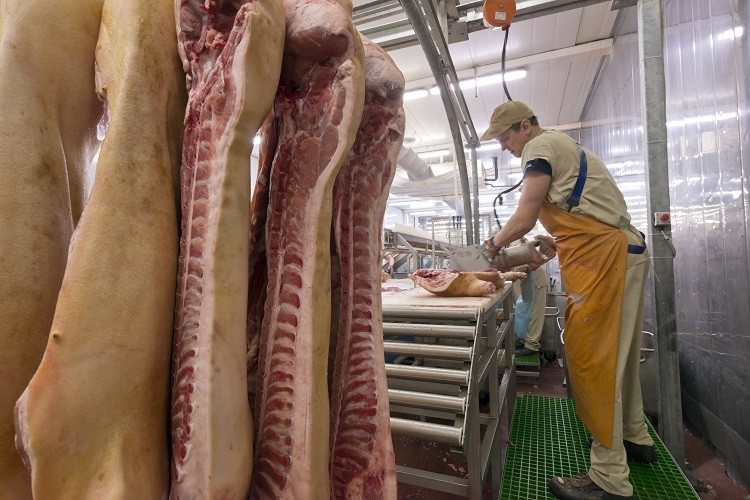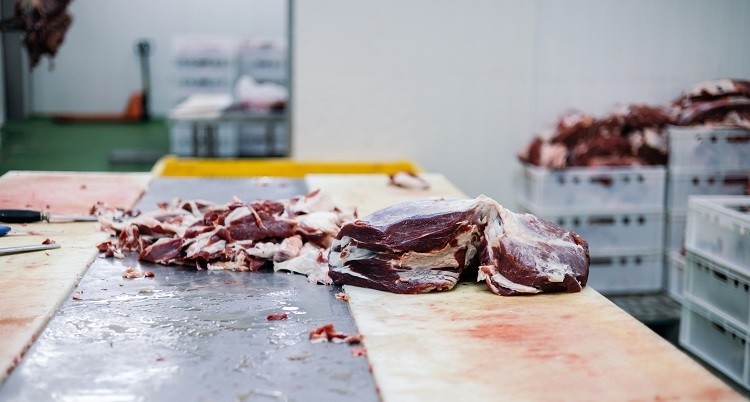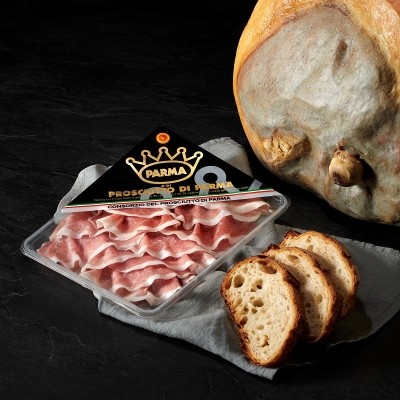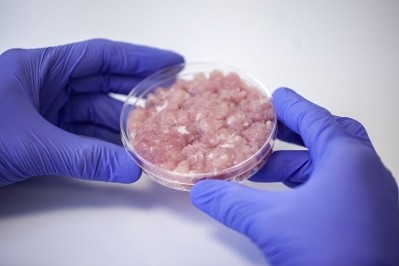Rotting ham and mislabelled meat? Pork scandal shakes meat industry

A recent investigation has revealed allegations that a food processor, which can’t be named for legal reasons, has been passing off pork sourced from other countries in Europe and countries in South America as British, sometimes up to tens of thousands of tonnes in a week. The processor in question is accused of using traceability information from a small amount of British meat for all the deliveries it made in a week – most of which was meat from elsewhere in the world falsely labelled as British.
According to allegations, processors also handled meat poorly, posing several hygiene risks; meat was thawed out on the factory floor, rotten meat was mixed with fresh meat, and gone off hams were “washed.” It is claimed that paperwork for sampling, which is used to pick up bacteria such as E coli and listeria, was falsified.
When inspections from agencies such as the FSA took place, employees would quickly hide the meat in lorries as the inspectors were putting on protective gear, as well as push the offending meat around the factory to ensure the inspector never saw it.
The meat from the manufacturer in question reached products sold in supermarket retailers such as Tesco, Co-Op, Asda, Marks & Spencer, and Morrisons.

Shaking the industry
The incident has drawn questions from many throughout the industry on whether such things can happen again. The FSA is conducting an investigation.
In a statement, the Chartered Institute of Environmental Health (CIEH) said that “this investigation illustrates a rather concerning recent trend following a spate of recent stories regarding the illegal import of food products as well as mislabelled food stuffs making its way into our supply chain. Given the recent outbreak of African Swine Fever, and with the ‘horsemeat scandal’ still fresh in the memories of many, CIEH are concerned that despite best efforts, these cases illustrate that vulnerabilities still persist.”
Independent environmental health consultant Helen Buckingham added “it is the early stages of this investigation and it is important that we don’t leap to any conclusions ahead of the facts. However, off the back of a recent rise in food crime in the news lately, it would be remiss not to make comparisons to the ‘Horsegate’ scandal ten years ago and the foot and mouth headlines ten years before that.”
“Horsegate” refers to the horsemeat contamination scandal, a scandal in 2013 where meat products across the UK were found to contain undeclared horsemeat, sometimes as much as 100%.
Checking supply chains
The meat industry is “rocked by” the scandal, Nick Allen, CEO of the British Meat Processors Association, told FoodNavigator. It draws attention to “the very sophisticated and complicated supply chain that everyone has.” Meat from the offending manufacturer was “filtering through to other people and impacting on their businesses.”
“From the conversations I’ve had with people,” Allen continues, “I think that [they will] be off checking, as they did after Horsegate, and making sure they know their supply chains and they’re confident that everyone supplying them is complying with the proper standards.”
“Very often people won’t even know who they are. I think there’s good reason for everyone to check their supply chains, and actually know where every bit of meat that you’re selling has been and where it’s come from.
“The immediate threat has been shut down but people will want to look at what happened, how did that happen and how can we stop that sort of thing happening in the future."
When there are people out there who are willing to break the rules, said Allen, you need to be really careful about your supply chain and ensure that you know where your products come from.
“It’s not,” he concluded “just the odd director shifting a bit of paperwork. There are quite a few people implicated in all of this.”
Allen also predicts that the scandal will result in a shift in how the industry conducts its auditing. “If you’ve got more sophisticated digital systems it’s easier to keep track of than just paperwork. A lot of auditing goes on already in the industry and I suspect there’ll be more because of this.”
The FSA in trouble?
A criminal investigation has been underway, with the processor first informed of the National Food Crime Unit (NFCU) would investigate them in September 2021. However, it was not until 22 March this year, when they made an unannounced visit, that three people were arrested.
Allen questions why the FSA didn’t discover, and act upon, the problem more quickly. How they come out of the scandal “will hinge on whether they can bring about a successful prosecution” of the perpetrators, Allen told us.
It is, however, serious. “They were in this plant some time ago and found some things wrong,” Allen continues. “It’s taken them ages to arrive at any sort of conclusions or be very clear with the industry what’s happened here. They assured everyone at first that this was just a beef labelling issues, but now there’s some allegations that would suggest there’s some food hygiene issues.”
According to Emily Miles, the FSA’s chief executive, there is “a live investigation which means we are looking into all new lines of inquiry with the relevant local authorities, including investigating potential food hygiene breaches.”
However, she claims that “based on the investigation to date, there is no indication that food is unsafe or there is an increased risk to consumers.”
The government’s response
While the FSA is a non-ministerial agency, it is still overseen by the government, and the scandal has brought its current status into question.
The incident was discussed in Parliament on 30 March. Thérèse Coffey, Secretary of State for the Department for Environment, Food, and Rural Affairs, appeared to suggest that the FSA should be put under the control of her department. It is currently managed by the Department for Health and Social Care.

“It is true that the Food Standards Agency is a non-ministerial department and is accounted for by the Department for Health and Social Care,” she said. “But as my honourable friend has already said, there is active engagement. But the machinery of government change he proposes is one of interest and I will consider that in line with the Prime Minister.”















